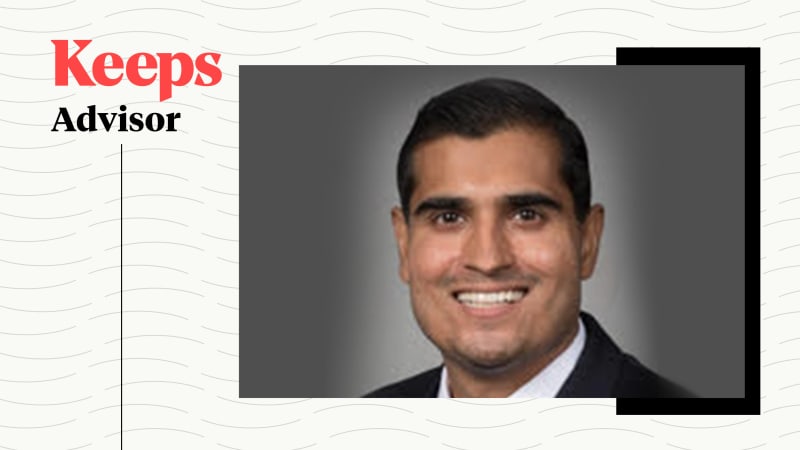Meet a Keeps Advisor: Dr. Raman Madan

You may not have heard of Dr. Raman Madan, but you’ve almost definitely heard of some of his patients: He works with the New York Mets and the New York Yankees.
Nope, he’s not an orthopedic surgeon or a conflict mediator—he’s a hair loss expert, Keeps Medical Advisor, and Professor of Dermatology at Hofstra University. Read on to learn a little bit more about Dr. Madan and what brings him to the Keeps team.
Tell us a bit about your education and background.
I earned my medical degree from Drexel University College of Medicine, where I was elected to the AOA medical honor society. Then, I completed my internship at Mount Sinai Beth Israel and my dermatology residency at SUNY Downstate in Brooklyn. After I finished my training, I worked in New York City for a while before returning home to Long Island.
How did you get into treating hair loss?
Hair loss has been a passion of mine since I was young. I have a strong family history of male pattern hair loss, so I wanted to make sure I was always ahead of the curve. I just took this interest and ran with it.
What do you like best about treating people for hair loss?
I love the satisfaction of helping relieve patients’ concerns about hair loss. Patients are often shocked that we even have effective treatments.
Also, every person has a story behind their hair loss and I love hearing all about that.
What’s your favorite hair fun fact?
A single hair has a lifespan of about five years.
What’s the most common question you get from your patients?
“Do I have to use these treatments forever?” Unfortunately, until we find a cure, the answer is yes. Treating hair loss is like fighting your genetics, but if you have the tools to put up a good fight, why not?
What advice would you give to someone who’s just started experiencing hair loss?
Make sure you get in touch with a board-certified doctor as soon as possible, online or in-person, because there are many different causes of hair loss and you need to get properly diagnosed. If you do have male pattern baldness, the earlier you start your treatment, the more effective it’ll be.
Another thing to keep in mind is that most successful treatments for hair loss are successful because they help maintain the hair you have. Don’t assume your treatment isn’t working if you don’t see substantial regrowth, because it may be preventing your hair loss from worsening.